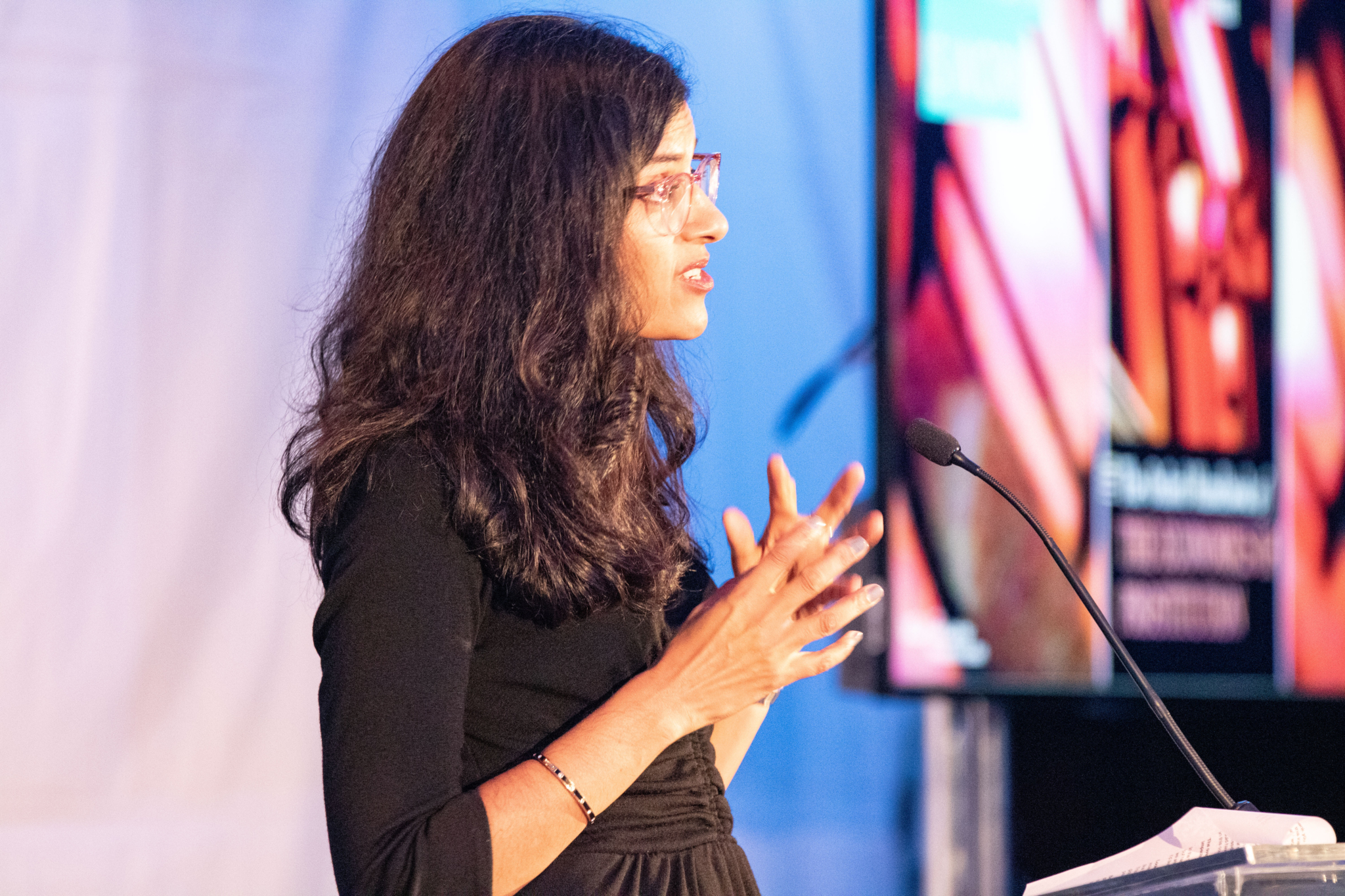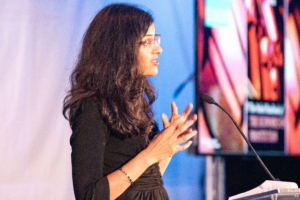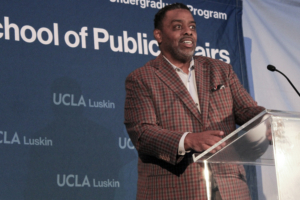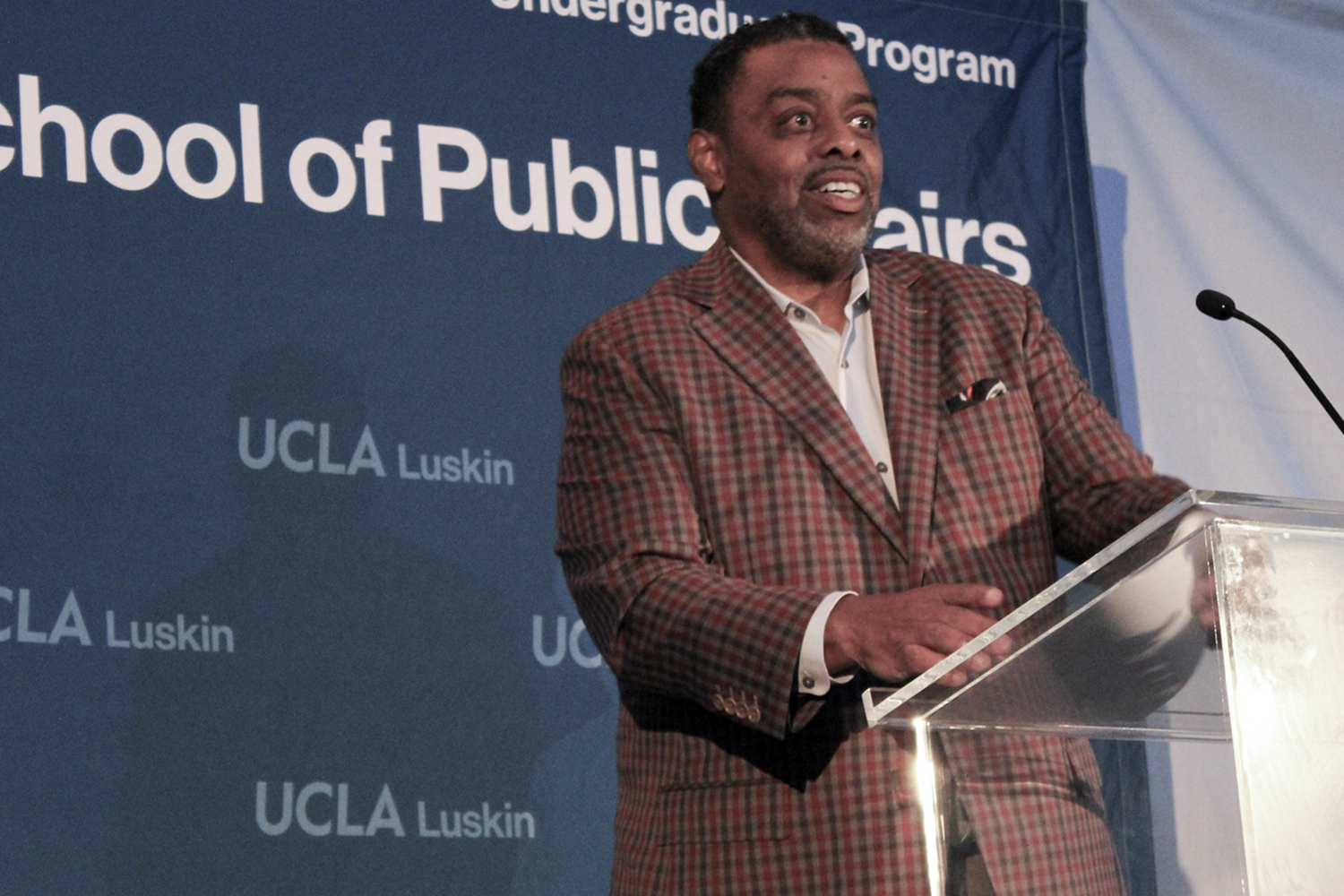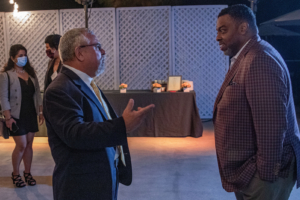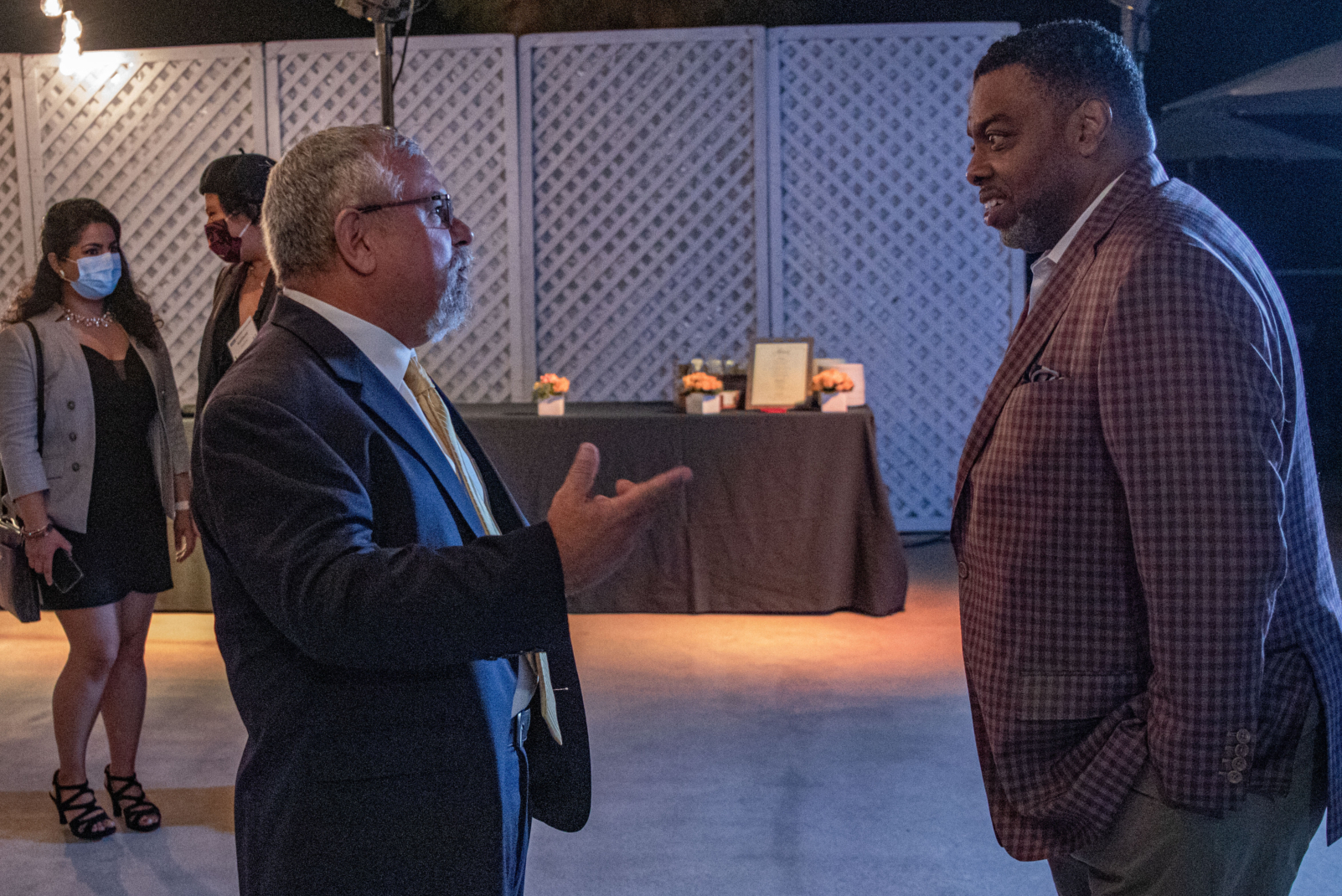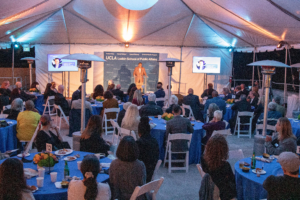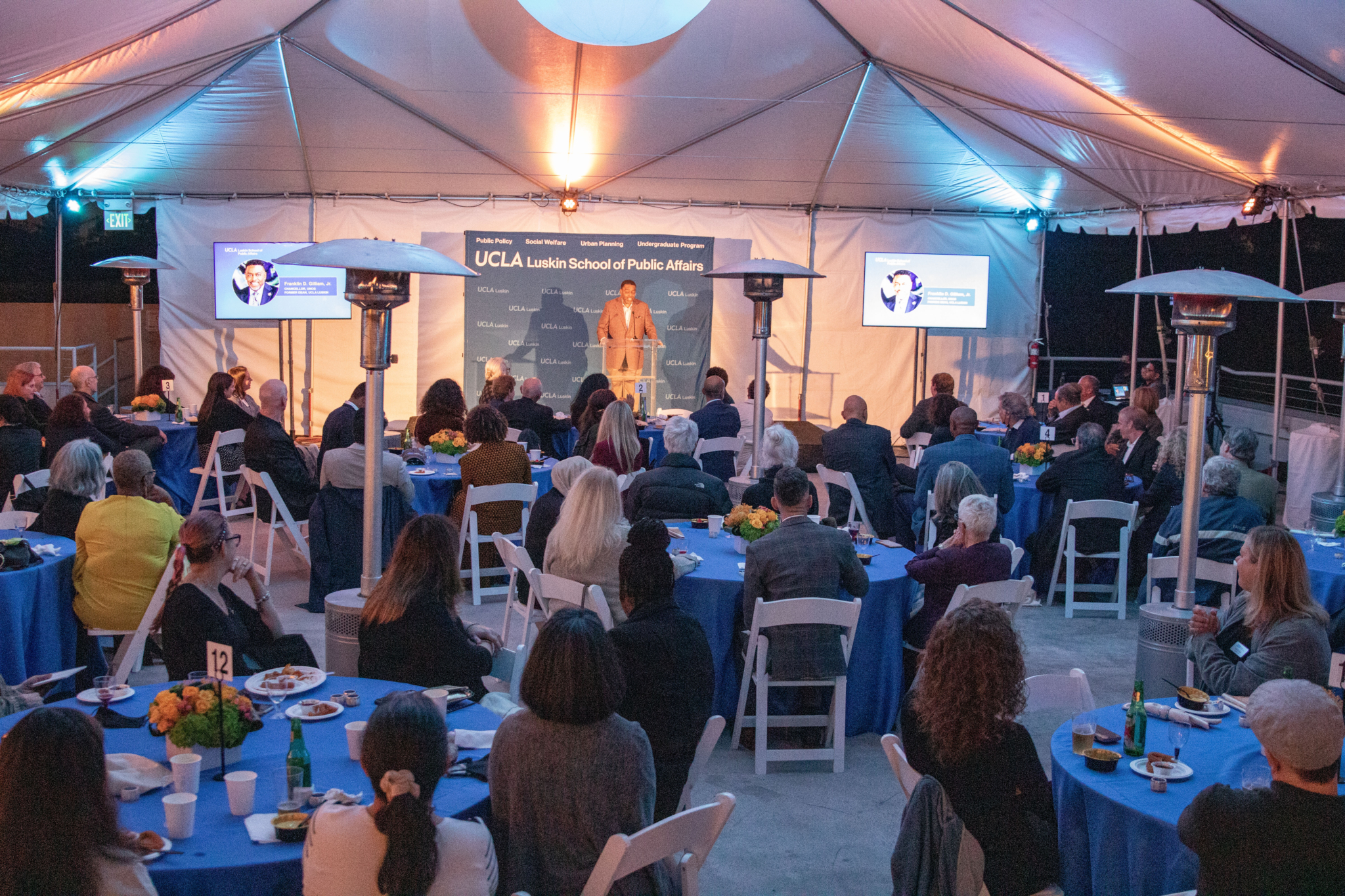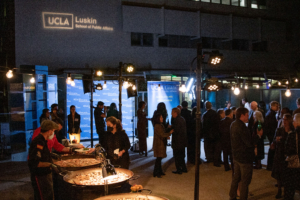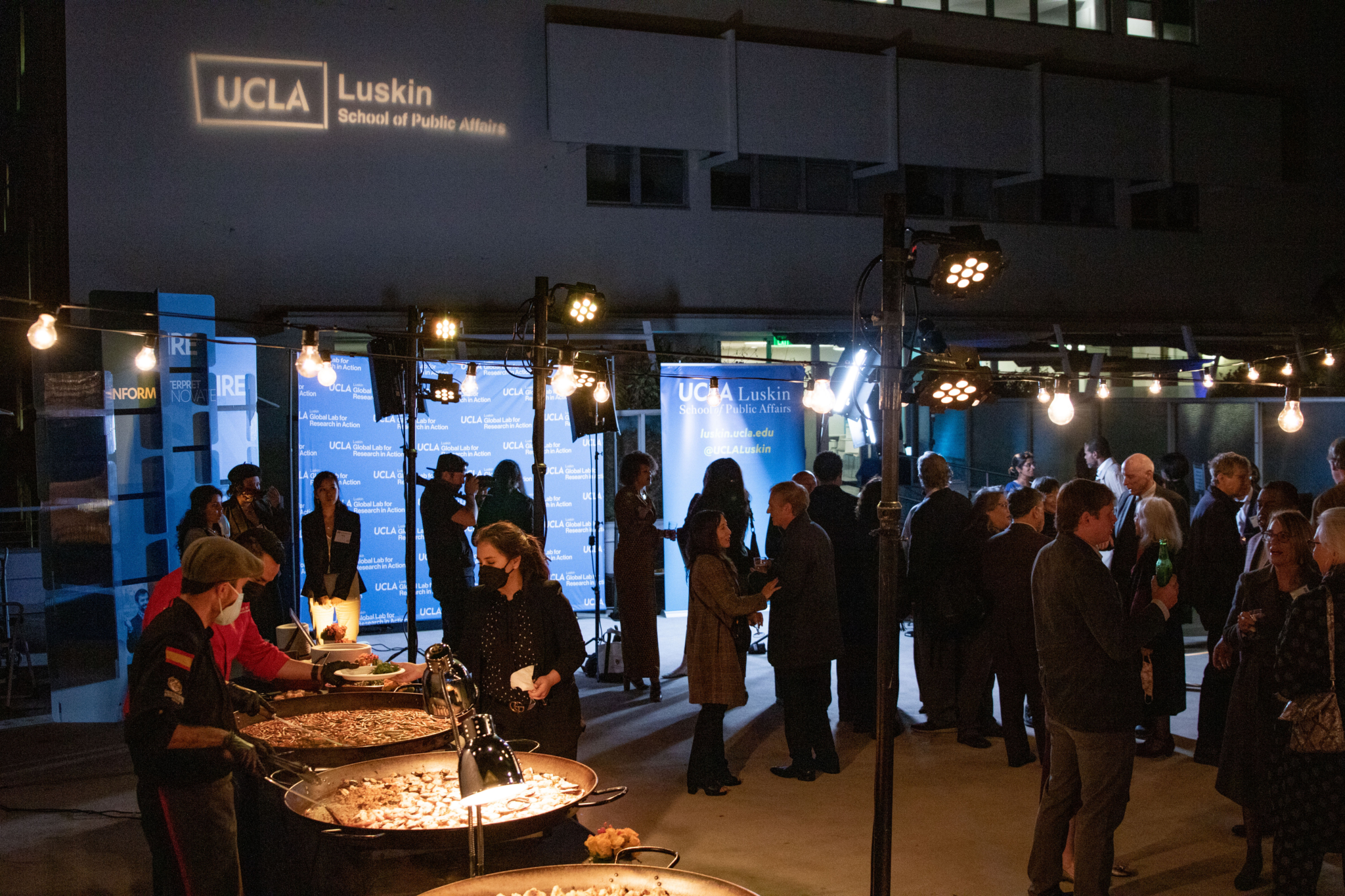By Les Dunseith
The Luskin School of Public Affairs presented its newest endowed chair to Professor Manisha Shah on Nov. 9 with the chair’s namesake, former Dean Frank Gilliam, and its benefactors, Meyer and Renee Luskin, in attendance.
The Franklin D. Gilliam, Jr. Chair in Social Justice, which was created by the Luskins as part of their naming gift to the Luskin School in 2011, will provide financial support for Shah’s research throughout a five-year term as holder of the chair. She is a professor of public policy who joined the UCLA Luskin faculty in 2013.
Gilliam’s long tenure at UCLA as a professor and then dean ended in 2015 when he became the chancellor of the University of North Carolina at Greensboro. He said it is an honor to have his name attached to an award focusing on social justice.
“I am extremely humbled and honored that the Luskins have created an endowed professorship in my name,” Gilliam told an audience of about 75 invited guests who assembled on the festively redecorated third-floor rooftop of the Public Affairs Building.
The social justice focus of the endowment was particularly meaningful for Gilliam. “These are issues I’ve spent my entire professional and personal life working on and I continue to do so today,” he said.
As the holder of the endowed chair, Shah said she plans to further her attempts to understand the barriers that prevent women and girls around the world from living their best lives, an issue that led her to found the Global Lab for Research in Action at UCLA in 2019.
“What do we do at the lab? Through a gender lens, we focus on hard-to-reach populations, understudied populations, and we look at groups like adolescents and sex workers and low-income women. We study critical issues related to child health and intimate partner violence and sexual health,” Shah said during her remarks. “Ultimately, the idea is that we’d like to shift public conversation and eventually shift some of the social norms.”
Gilliam, who first hired Shah to join the faculty at UCLA, expressed pride and excitement that she had been chosen as the inaugural holder of the chair in his name.
“She is a remarkable person, a remarkable intellect,” Gilliam said. “Her work is so important. It spans disciplines like economics and public policy and really social welfare, quite frankly. She focuses on the most understudied topics and the most overlooked populations. … This is big stuff.”
Current Dean Gary Segura noted the pivotal role that Gilliam played in bringing social justice to the forefront during his time as dean, shaping the sometimes-disparate disciplines within the Luskin School into a unifying vision.
“Frank Gilliam, perhaps more than any single other leader in the School’s history, shaped the social justice mission and identity of the Luskin School of Public Affairs,” Segura said.
In his remarks, Meyer Luskin said his observations of Gilliam’s leadership and priorities helped lead him toward making the $50 million naming gift to the Luskin School a decade earlier.
“I saw dedication, courage, morality and ethics, empathy, much resourcefulness, strength and kindness, intelligence, hard-working, visionary, loyalty, a great sense of humor, and a man most devotedly committed to justice and equality,” he said.
Segura thanked the Luskins for their foresight and generosity in endowing the new chair, plus three other previously awarded chairs benefitting professors at UCLA Luskin.
Gilliam said their selflessness is well-represented among people associated with the professions of social work, public affairs and urban planning that are taught at the Luskin School.
“The people who work in your area often go unnoticed. They don’t do it for the fame, they don’t do it for the fortune,” he said. “This is hard work, it’s complicated work. It’s real work … on the ground, dealing with real-world policy problems that affect the society.”
Gilliam surveyed the crowd of family, friends and former colleagues who had gathered to celebrate Shah and recognize an endowment that will forever carry his name. Ultimately, said the former professor, dean and current chancellor, it’s about passion for the cause, the mission, embodied for Gilliam in the words spoken by Meyer Luskin when they first met:
“My goal in life is to make the world a better place.”
View additional photos:

